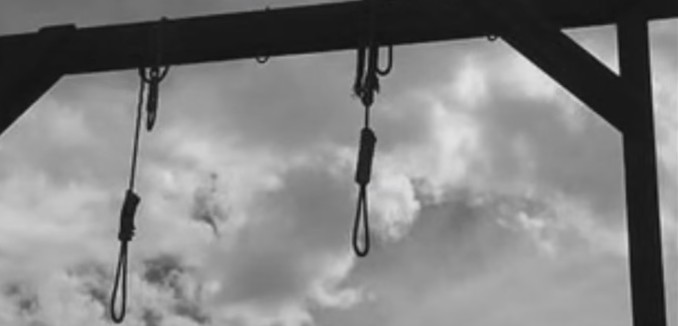The nuclear deal with Iran “will neither make the Middle East safer nor fundamentally change the nature of the Iranian regime and its conduct in the region,” former Italian Foreign Minister Giulio Maria Terzi wrote in an op-ed for Politico Europe on Wednesday.
Terzi, who also served as Italy’s ambassador to the United States and the United Nations, noted that while many in the international community would like to see Iran embrace values of liberty, plurality, and human rights, the Tehran regime does not seem interested in doing anything of the sort. He pointed out that as the nuclear deal was being implemented, Iranian Supreme Leader Ayatollah Ali Khamenei made sure to stress that cooperation with the West would not extend to include a discussion on human rights or regional security.
Iran’s dismal human rights record is evident in its soaring execution rate, which Terzi wrote reportedly reached 52 hangings in 2016 so far. The killings have intensified a climate of terror in the Islamic Republic, where over 2,000 people have been executed since Iranian President Hassan Rouhani took office, according to the anti-torture group Hands Off Cain. Terzi added that although Iran has long held the grisly distinction of executing more people per capita than any other country, this rate has registered a “sharp increase” during Rouhani’s administration.
Iran has also spent billions of dollars to prop up the regime of Syrian dictator Bashar al-Assad, which killed tens of thousands of civilians since the onset of the Syrian civil war. Terzi noted that Iran sent thousands of its Islamic Revolutionary Guard Corps troops and recruited as many as 25,000 mercenaries to fight in defense of Assad, and blocked any diplomatic efforts to remove the dictator from power.
Other violations Terzi cited include Iran’s test launch of a ballistic missile in October, which a U.N. Panel of Experts found breached U.N. Security Council resolution 1929, and which Rouhani answered by personally “[ordering] Defense Minister Hossein Dehqan to further expand the country’s ballistic stockpiles.”
Terzi also pointed to Iran’s recent firing of rockets near an American aircraft carrier, the seizure of ten American sailors in the Persian Gulf, and aggression “toward our allies in the Middle East.”
“European governments are willing to talk with Rouhani about oil deals and trade partnerships even if it means actively ignoring Iran’s worsening human rights situation, its sponsorship of terror, and its destabilizing activities in the Middle East,” Terzi lamented.
“Hope cannot be a substitute for prudent policy,” he cautioned, suggesting that in addition to whatever trade talks the Europeans have with Rouhani, they should remind him that “unless the regime truly moderates its conduct,” the West will not seek closer diplomatic and commercial ties with Iran.
Terzi concluded that until Iran begins “releasing political prisoners, safeguarding the rights of citizens, withdrawing support for terrorist groups, retracting hateful propaganda, and ending their meddling in the affairs of other countries,” the idea that the nuclear deal has led to a new, moderate Iran “will remain a fantasy.”
Ben Cohen, senior editor of The Tower, made a related point in a recently published commentary:
The key point to remember is that nothing has substantively changed. Iran remains a brutal theocracy, unashamed of imposing its primitive values on democratic nations, as Rouhani’s visit to Rome testifies. Iran’s leaders are personally responsible for some of the most vile atrocities of the Syrian civil war, through their backing of Bashar al-Assad’s dictatorship. Iran wants to destroy Israel and turn the Islamic world into a web of deadly sectarian violence.
[Photo: stop executions / YouTube ]




